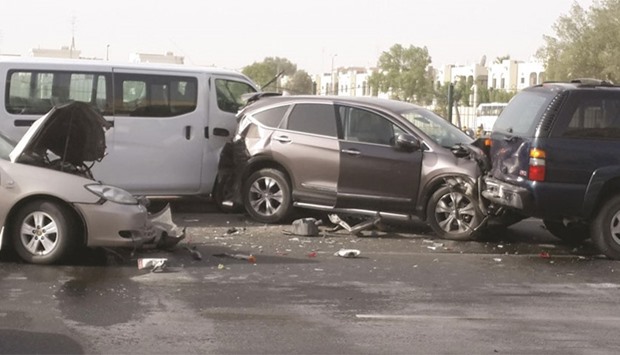Every year, the HTC admits up to 900 patients with severe road traffic injuries and the number of severely injured patients historically rises during Ramadan. However, an increase in public awareness campaigns and traffic law enforcement has led to a significant reduction in the total number of deaths from road traffic injuries during Ramadan in the past two years.
“It is important that we build on the momentum from the successful efforts of recent years to make roads in Qatar safer for all during the Holy Month of Ramadan,” said Dr. Hassan al-Thani, head of the Trauma at HMC.
“We advise road users to exercise extra patience and restraint during this Ramadan as people may be rushing to break their fast or more prone to impaired driving because they are distracted, tired or sleepy. They also need to take extra precautions while on the roads in order to avoid preventable crashes that can occur due to speeding and the humid and dusty conditions,” explained Dr. Hassan.
The HTC has offered a number of suggestions to road users with the aim of preventing road injuries and deaths during this period.
HMC has asked the drivers and all passengers to wear the seat belt on every trip to prevent severe injuries and deaths in motor vehicle crashes. It has also directed to follow all the weather forecasts and general advice about driving conditions on local radio or TV, so that people can plan the routes and make an earlier trip if necessary.
Another suggestion is to drive always within speed limits and increase the distance with the vehicle in front so that people can brake safely. HMC has also asked to avoid distractions such as mobile phones, earphones or the stereo, so people can pay full attention to the road conditions.
All the pedestrians and cyclists should use the bike lanes, pedestrian crossings and sidewalks constructed especially for them. Pedestrians must walk in the direction facing the traffic flow so they can see oncoming vehicles and they will not suddenly emerge from behind or beside.
“The number one action you can do to protect yourself in the event of road traffic accident is to wear a seatbelt – not only in Ramadan, but every single time you travel in a vehicle,” Dr. Hassan stressed.
“Drivers and passengers who are not wearing seatbelts are at a much higher risk of dying, being ejected from a vehicle, or suffering from a severe injury or permanent brain damage, if they are involved in a road crash or accident. Drivers who do not use a seatbelt are five times more likely to die, while front seat passengers are four times more likely to die, if they are unrestrained,” he added.

Every year, Hamad Trauma Centre admits up to 900 patients with severe road traffic injuries and the number of severely injured patients historically rises during Ramadan. Picture shows a pile-up of vehicles as a result of tailgating, on D Ring Road in Doha, May 25, 2015. Picture: Johny Bastian.
The Hamad Trauma Centre (HTC) of Hamad Medical Corporation (HMC) has advised motorists to take extra care when driving during this Ramadan.
